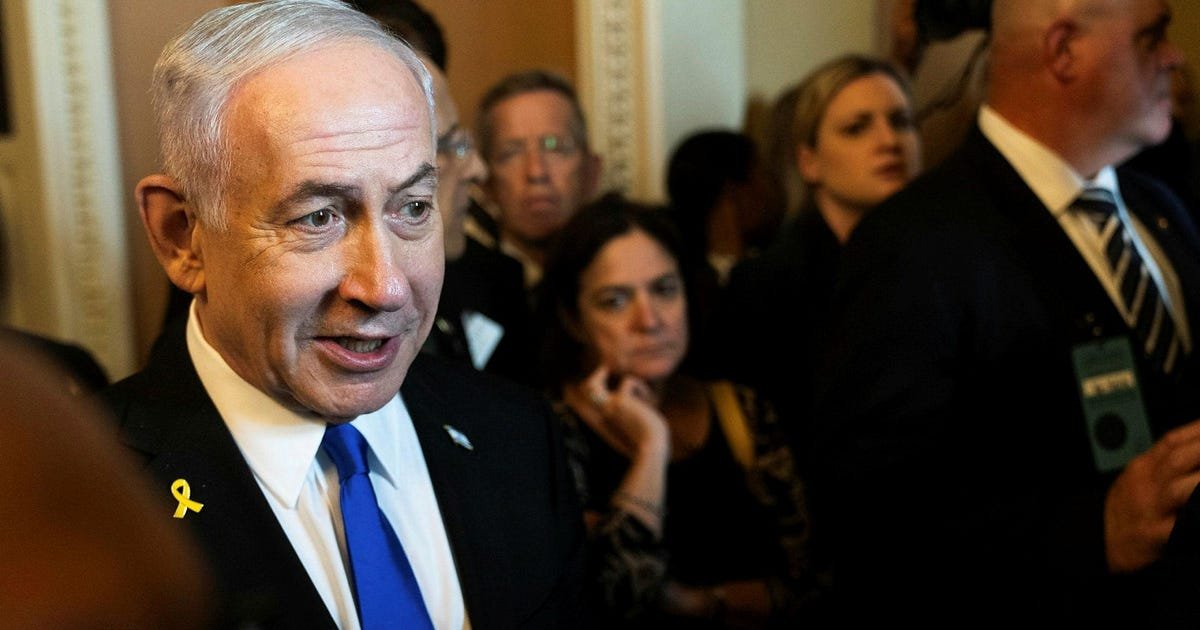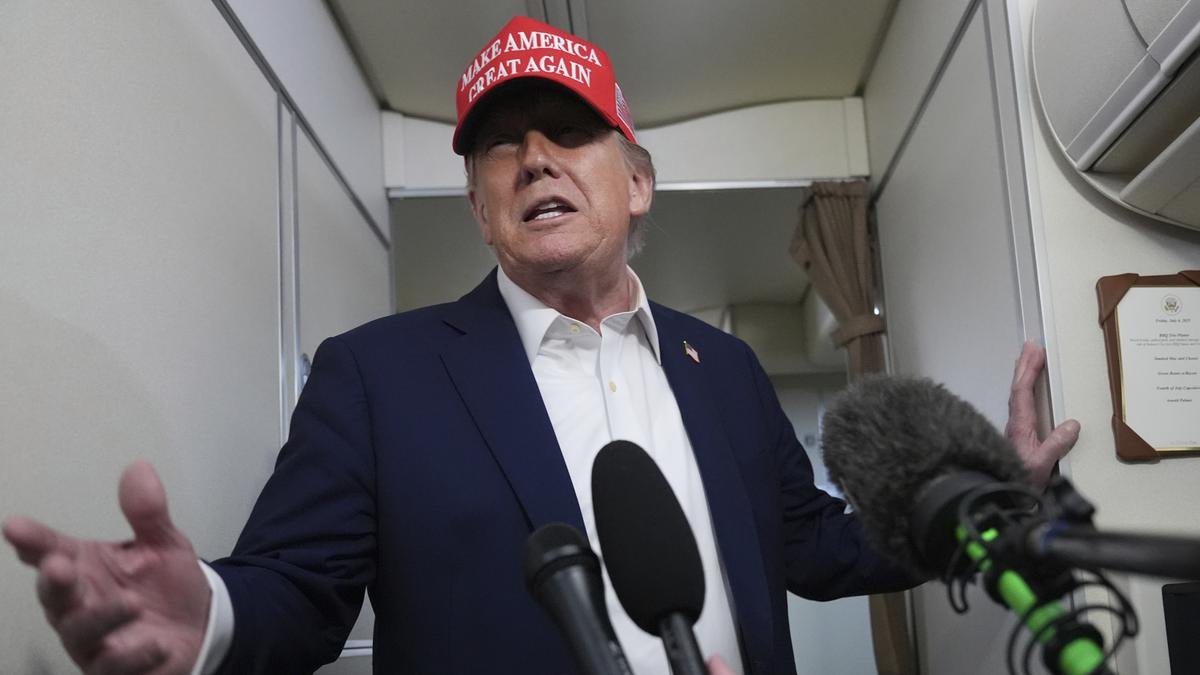The International Committee of the Red Cross reported that it received 132 patients who had “weapon-related injuries” at its field hospital in the southern Gaza city of Rafah on Saturday. The organization said these were related to the “latest mass casualty incident linked to food distribution sites.”
In a post on X, it added that 25 people were declared dead upon arrival and six more after they were admitted to the field hospital. “This situation is unacceptable. The alarming frequency and scale of these mass casualty incidents underscore the horrific conditions civilians in Gaza are enduring,” the statement said.
According to the Red Cross, since the Gaza Humanitarian Fund opened its food distribution sites on May 27, over 3,400 wounded patients have been treated at the field hospital, and more than 250 fatalities have been recorded.
Following a brief nighttime visit to the northern Gaza town of Beit Hanoun between Thursday and Friday, a central question emerges: Does the Israel Defense Forces’ current mission in Gaza have a defined end goal? And can the dismantling of Hamas’s infrastructure realistically be achieved within weeks or even months?
When we posed the question to officers from the 646th Reserve Paratroopers Brigade – most of whom have already spent over 300 days on duty – their response was unequivocal. The IDF, they asserted, is winning the campaign, the objectives are within reach and by the time the fighting ends, Israeli communities along Gaza’s northern border – from Kibbutz Zikim and Kibbutz Carmia to the southern city of Sderot – will be significantly safer.
As for Beit Hanoun, they say it’ll be leveled entirely. The remaining terror tunnels beneath will be destroyed and Hamas members pushed beyond firing range of Israeli towns.
Just a few miles away in Israel, and certainly in the country’s television studios, the tone is markedly different. Questions about the war’s purpose and direction are mounting, especially after Prime Minister Benjamin Netanyahu returned from his U.S. visit without securing a hostage deal.
Read the full article
Likud Ministers Amichai Chikli and Yariv Levin defended in a letter to the High Court the government’s decision to dismiss Attorney General Gali Baharav-Miara.
The ministers accuse the AG of hindering the advancement of government policy and say the government should not be forced to allow the continuation of her term.
Iran’s foreign minister said Saturday that his country would accept a resumption of nuclear talks with the U.S. if there were assurances of no more attacks against it, state media reported.
Foreign Minister Abbas Araghchi said in a speech to Tehran-based foreign diplomats that Iran has always been ready and will be ready in the future for talks about its nuclear program, but “assurance should be provided that in case of a resumption of talks, the trend will not lead to war.”
Referring to the 12-day Israeli bombardment of Iran’s nuclear and military sites, and the U.S. strike on June 22, Araghchi said that if the U.S. and others wish to resume talks with Iran, “first of all, there should be a firm guarantee that such actions will not be repeated. The attack on Iran’s nuclear facilities has made it more difficult and complicated to achieve a solution based on negotiations.”
Following the strikes, Iran suspended cooperation with the UN nuclear watchdog, which led to the departure of inspectors. Araghchi said that under Iranian law, the country will answer the agency’s request for cooperation “case by case,” based on Iran’s interests.
He also said any inspection by the agency should be done based on Iran’s “security” concerns as well as the safety of the inspectors. “The risk of proliferation of radioactive ingredients and an explosion of ammunition that remains from the war in the attacked nuclear sites is serious,” he said.
He also reiterated Iran’s position on the need to continue enriching uranium on its soil. U.S. President Donald Trump has insisted that it cannot happen.
Israel claims it acted because Tehran was within reach of a nuclear weapon. U.S. intelligence agencies and the International Atomic Energy Agency had assessed Iran last had an organized nuclear weapons program in 2003, though Tehran had been enriching uranium up to 60 percent – a short, technical step away from weapons-grade levels of 90 percent.
Iranian President Masoud Pezeshkian, in an interview published Monday, said the U.S. airstrikes so badly damaged his country’s nuclear facilities that Iranian authorities still have not been able to access them to survey the destruction.
Opposition Leader Yair Lapid, in response to a proposal to make Rafah a humanitarian city for Gaza’s entire population, said: “With the 15 billion that Smotrich’s humanitarian city in Rafah will cost, it would be possible to reduce the size of our children’s classrooms, lower the prices of fuel and public transportation, subsidize daycare centers and kindergartens.”
“This is just the beginning,” he added, “This money will not come back, Netanyahu is letting Smotrich and Ben Gvir run wild with extremist delusions just to preserve his coalition. Instead of stealing the middle class’ money end the war and return the hostages.”
IDF Chief of Staff Eyal Zamir has ordered a freeze on a planned extension to the service of combat soldiers in special units and a review of the subject.
According to the army, soldiers in these units commit to serve a period of time beyond compulsory service, which can last up to a year.
A statement from the IDF says that while extensions have already been implemented “according to the needs of the units and existing resources,” soldiers will not be required to serve longer than the period that they committed to at the start of their training course.
“The choice is America’s. Will the U.S. finally choose diplomacy? Or will it remain ensnared in someone else’s war?” This was the closing line in an essay published by Iranian Foreign Minister Abbas Araghchi in the Financial Times on Tuesday.
It’s an interesting choice of words that frames the attack on Iran and Washington’s policy toward it as being dragged by Israel rather than as an American initiative.
Hence his statement that the United States can repair the damage the war had caused by diplomatic moves in which “In only five meetings over nine weeks, U.S. Special Envoy Steve Witkoff and I achieved more than I did in four years of nuclear negotiations with the failed Biden administration.”
Iran officially denied it had approached the United States directly to resume the negotiations that were stopped on the eve of the war, as U.S. President Donald Trump had said. However, its senior leaders, including President Massoud Pezeshkian, continue to speak publicly in favor of renewing the talks and engaging with mediators to advance them.
Read the full article
More than 70 people were arrested Saturday at protests in the U.K. against the Palestine Action group being proscribed as a terrorist organization by the British government.
British lawmakers proscribed the group under anti-terrorism legislation earlier this month after some of its members broke into a Royal Air Force base and damaged planes in protest against Britain’s support for Israel.
Read the full article
In an interview with Fox News on Saturday night, Prime Minister Benjamin Netanyahu said that Israeli “disruptions” held back Iran’s nuclear program for ten years.
“They were supposed to be where they are now a decade ago,” said Netanyahu. Iran “rushed to weaponize after the fall of Hezbollah and the collapse of the axis,” and Israel “could see that. Within a year, [Iran] would have an attack bomb, and they’d use it, they’d actually wipe us out.”
Netanyahu added that U.S. President Donald Trump “understands that our enemy is [the U.S.’s] enemy, and that our victory is your victory. He changed American policy. He said, ‘If this is our common enemy, we can have a common victory.'”
Trump striking Iran “helped project American power and resolve around the world. It’s a different America. It’s the America that the entire free world has actually longed to see,” added Netanyahu.
Netanyahu also noted that a deal with Iran should only be agreed to if it includes “zero uranium enrichment, no ballistic missiles beyond what is permitted under international treaties, and no terror axis.”
He said that he appreciated U.S. President Trump’s “unqualified support for Israel,” because Israel “shares intel” with the U.S. that “saves many, many American lives.” Netanyahu added that Israel does not “ask American servicemen and service women to join us on the ground, we can do our own defense.”
Gaza is “the last stronghold for Iran in our neighborhood,” said Netanyahu, and “the only reason [the war] is still going is because of the hostages. We’re doing everything we can not to cause them harm.”
“We’re working on [a deal],” he said, “I’m confident we will achieve that.”
While negotiations for a Gaza cease-fire and hostage release deal are not currently progressing toward an agreement, talks are still ongoing in Qatar’s capital of Doha, sources familiar with the details said on Saturday.
One of the main points of contention between Israel and Hamas is how IDF forces will be deployed in the Gaza Strip during the cease-fire. Amid the deadlock in the negotiations, both Israeli and Hamas officials blamed each other on Saturday for the difficulties in the talks.



